Of the major European leagues, there is arguably none more synonymous with giving youth a chance than the Bundesliga. This policy rings true across the board. Young managers from within a club’s system are often the first the hierarchy turn to in a crisis. Coaches are never afraid to throw young players into the deep end, like Lucien Favre with Jadon Sancho at Borussia Dortmund. It’s a sink or swim league. Schalke’s Weston McKennie has benefitted from such a policy.
Schalke are a club which are not an exception to this rule. Their academy, known as Knappenschmiede, has raised the likes of Manuel Neuer, future Arsenal playmaker Mesut Özil, and Julian Draxler, just to name a few. One player who is currently benefitting from this system is Weston McKennie, a young American midfielder originally hailing from Texas and FC Dallas’ academy.
Plying his trade at the base of Schalke’s midfield, there is a great hope amongst his supporters (especially Americans) that he can be a key cog in bringing the club back to regular Champions League football. This piece will provide some analysis on the Schalke youngster, as well as some key statistics.
Positioning
Throughout his early days in Schalke’s first XI, the American has been deployed as a number six. Arguably, though, he is more comfortable as a box-to-box midfielder, a role which utilizes his athleticism the greatest. When given opportunities last season, McKennie largely found himself in a double-pivot with recently departed Leon Goretzka his primary partner in Domenico Tedesco’s 3-4-2-1 system. This season, he has played more and more as a lone number six due to Max Meyer’s transfer to Crystal Palace.
On the rare occasion that Tedesco has used a formation which incorporates a back four (such as a 4-4-2 diamond or a 4-3-3), McKennie was positioned as one of the shuttling midfielders ahead of a lone defensive midfielder. This role allows McKennie to press all across the pitch and disrupt, undoubtedly something the manager appreciates.

Defensive work-rate
While not blisteringly quick, McKennie’s aggressive work-rate and durability make him a very important member of the team when Schalke are without the ball. His ability to slide across the pitch to cover ground, cut off opposition passing angles and more cannot be stressed enough.
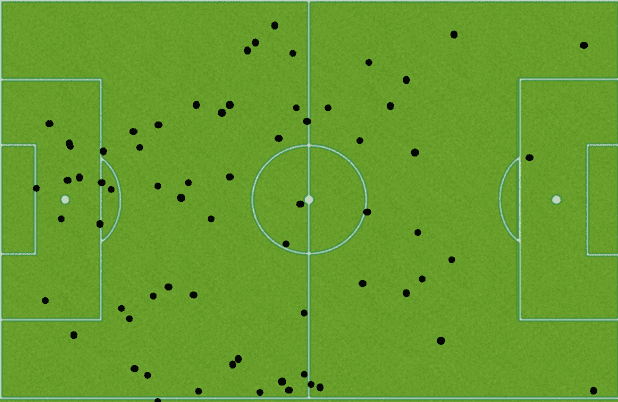
Standing 6″1′ tall and weighing over 13 stone, the player’s size and strength often sees him come out on the winning end of defensive duels. He has won over 72% of all such actions this season in the Bundesliga. If there is one thing American footballers are known for, it’s effort and graft, something McKennie has in spades. Speaking about his positional requirements at Schalke, McKennie said last December that “[Tedesco’s football] requires a lot of running…stepping out, pressure, come back.” He is well suited to such demands.
Intelligence
McKennie is not just brawn and no brains, however: he is remarkably intelligent for a player his age. One of the hallmarks of a great midfielder is being familiar with one’s surroundings and positioning. Some examples include knowing when to drop in deeper to support the defence, checking shoulders to see danger around the top of the penalty area, and moving across to shield for other players: McKennie is adept at all of these.
When partnered with a player who is usually given more license to get forward and join the attack, his recognition of necessary discipline to provide balance and cover is advanced for his age. Equally, he is not afraid to drop in alongside his centre-backs when Schalke find themselves under the cosh or caught on the back foot.
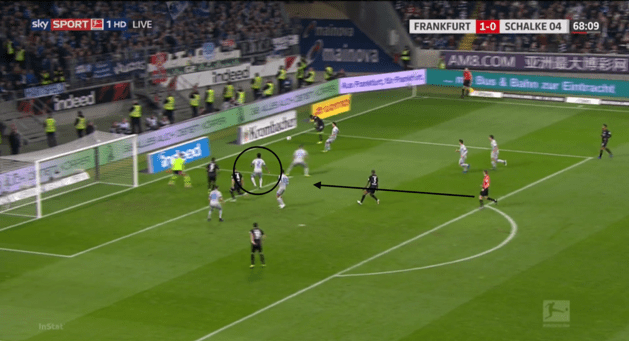
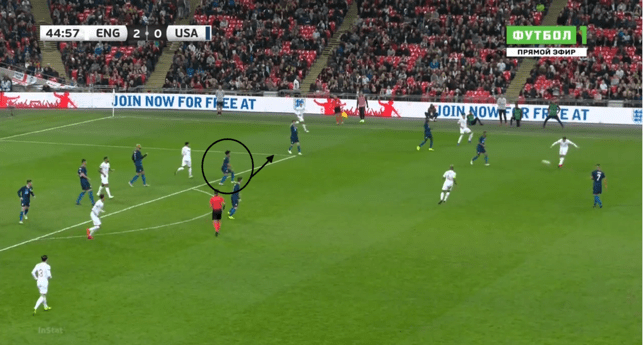
Passing
This is arguably the area of McKennie’s game which is undervalued and underutilized. While the football of Domenico Tedesco was incredibly successful last season, one would never reach as far to say it was easy on the eye. Tedesco values quick, direct, transitions in his teams, which means central players are often left by the wayside.
Despite this, McKennie has averaged a passing accuracy of 83%, and completed 1.5 key passes per 90 minutes. When in possession, the young American likes to dribble and drive with the ball. He is equally capable of slowing down the pace of play to suit the demands of the game. This is uncommon with the typical American player playing abroad.
McKennie has best shown this ability on the ball to dictate while playing as the solitary defensive midfielder, such is the nature of the position with time on the ball. He still remains comfortable with one-touch football or quicker actions in the tighter spaces higher up the pitch.
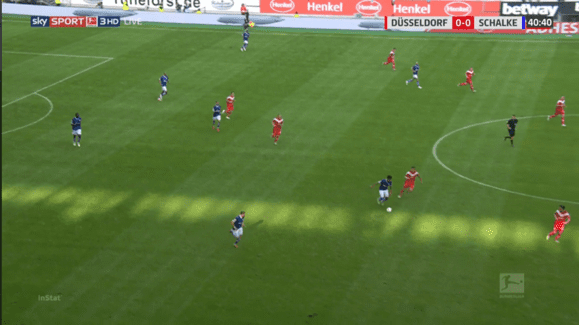
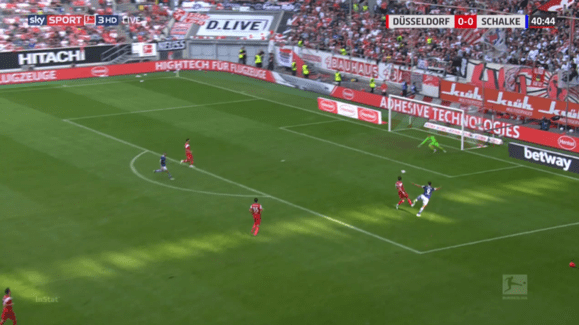
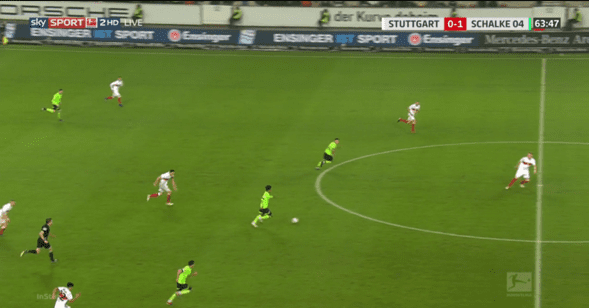
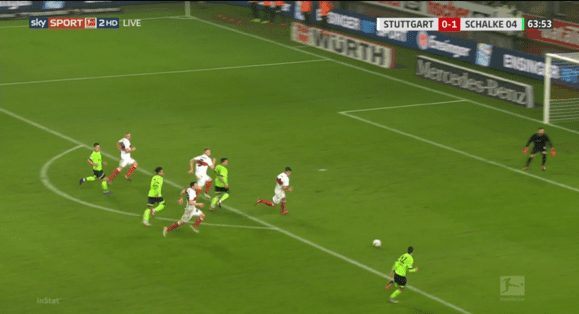
Summary
Given more time to develop and more matches to play, it is likely that McKennie’s best position will become clearer as time goes on, either as number six or a number eight. Regardless of his future, fans of Schalke and the United States national team have much to look forward with the young Texan midfielder.

An incredibly versatile player capable of playing across the entire midfield, McKennie will likely be an important cog in whatever team he plays. Quick and strong, smart and technical all at the same time, he is a rare breed of footballer and a sign of the times in the growing change in American players.
It is arguable that Tedesco’s noticeably direct, physical, and pressing tactical requirements somewhat limit McKennie’s more subtle gifts as a footballer. Due to the ever-revolving door of ins and outs at a selling club like Schalke, however, he will no doubt continue his upward trajectory, should he remain in Gelsenkirchen.
If you love tactical analysis, then you’ll love the digital magazines from totalfootballanalysis.com – a guaranteed 100+ pages of pure tactical analysis covering topics from the Premier League, Serie A, La Liga, Bundesliga and many, many more. Get your copy of the FIRST of two December issues for just ₤4.99 here, or the SECOND of the December issues with an annual membership right here.





Comments